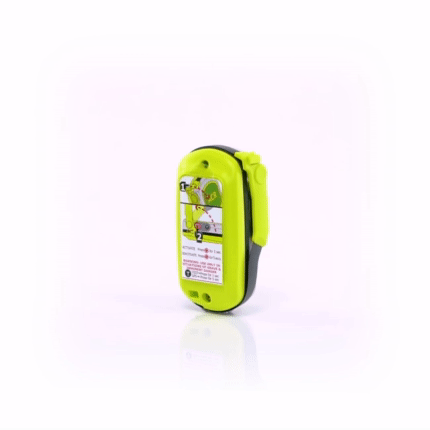Lives saved
4

Hiking

Medical emergency

Thunder storm
Ontario
51.253775°N, -85.323214°W
Posted on May 3, 2018 by Kent Ingram
What happened?
One more year. Those few words were filled with expectation and triumph as my companions and I left La Tourelle’s headed for Ontario’s Quetico Provencial Park. Between us, we had made nearly 100 trips to this northern paradise with each one seemingly better than the last. All of us were experienced outdoorsmen and with an average age of 62 we were prepared for any eventuality.
I had suffered a mild heart attack just after I retired in 2008 and was the proud owner of four heart stents. My wife and cardiologist agreed that I could continue my annual pilgrimidges to the North if I maintained my medication schedule and kept myself in good physical condition. My wife had an additional requirement that I obtain and carry a beacon. I concurred and was soon on the receiving end of good natured ribbing from my travel companions concerning my “electronics kitchen sink” approach to back country outings.
Our trip plan has evolved over the years from eight to ten days of paddling covering up to 90 miles to four to five days paddling covering 30-50 miles. This trip was planned to get us well into the park away from other parties where we could stay in one or two locations for the duration of the trip. We have long since graduated from paddling the ten miles from La Tourelle’s outfitters to the ranger station at Prairie Portage on the Canadian border preferring instead to have them ferry us and our canoes to the border. At the end of the trip we would reverse the process. We left the ranger station mid-morning on August 30 and began the trek to the Lake. Several canoe miles and portages later we were just one lake from our destination with only two short portages between us and invigorating cold water swim.
With two people in each of two canoes the portage process involves one person carrying the canoe and a pack and the other carrying a pack and any loose gear including fishing rods and paddles. If there are extra packs, the person not carrying the canoe sometimes carries two packs-one on the front and one on the back. There are downsides to this method. The extra weight affects your stability and the front pack makes it very difficult to see your feet. Some portages are clean paths worn smooth by the moccasins of early dwellers and others are rocky with up to boulder-sized stones protruding from the compacted earth. These ankle breakers combined with the many rock ledges in the paths create a hazardous environment for the unwary voyageur. Rob and Jim had carried their loads to the other end of the portage and were waiting on Kent and I to arrive.
I shouldered my pack and lifted the canoe over my head. As I swung the boat into alignment with the trail and started forward, a loud, painful cry stopped me in my tracks. At first I thought it was my paddling partner yelling for me to bring something he had left at the lake’s edge. But as the cry increased in volume and urgency, I dropped the canoe and pack and proceeded up the trail to investigate. The person in distress was Kent. He had taken the two-pack approach and about halfway through the portage when he slipped on a rock ledge, deposited his foot in a hole at the bottom of the ledge and fell backward helped along by the weight of the packs. We did not know it at the time but the fall shredded the connective tissue in his right ankle.
We assessed our circumstance and decided to camp where we were and wait until morning to reevaluate his ankle. The ACR beacon was discussed as an alternative. The next morning the pain in his ankle had increased to the point that immediate evacuation was the only answer. We knew we could not evacuate him due to his size and the many miles we would have to travel to reach assistance. We let Kent make the decision. He chose to activate the beacon rather than delay any longer with the hope that the ankle would improve. We prepared a site marker and activated the TerraFix.
Three hours elapsed before we saw the Ontario Provencial Police helicopter. The pilot acknowledged our location by circling briefly and then landed on a large rock in the middle of a marsh, a tenuous proposition at best. While the paramedic obtained information from Kent and stabilized his ankle, the other two rescuers planned a path back to the helo and cut two poles to use as a stretcher frame. There was not a direct path to the landing zone more than 100 yards away so the approach took us cross country through the woods, through a creek bed and over several rock outcroppings and boulders. The threat of injury to the extraction team was ever present due to the roughness of the terrain. It would not have been a pleasant experience to have to call another SAR team to rescue the first one or another of our team so everyone moved with extreme caution.
The SAR team took Kent to the hospital in Thunder Bay, Ontario where he was treated and released the next day. We returned to camp and prepared for an early departure the following morning to paddle out of the Quetico and to travel to Thunder Bay to retrieve Kent. The paramedic said that his injury while painful would not necessarily be life-threatening in an urban environment, but could have quickly become life-threating in our wilderness setting. Thankfully Kent made a full recovery and the comments from my companions regarding my “kitchen sink electronics” approach to canoe camping have since turned into praise for my wife for insisting that I carry the TerraFix.
Words of wisdom
Thankfully Kent made a full recovery and the comments from my companions regarding my “kitchen sink electronics” approach to canoe camping have since turned into praise for my wife for insisting that I carry the TerraFix.
Thank you note
Thank you ACR.
Rescue location
Ontario
Rescue team
Other
